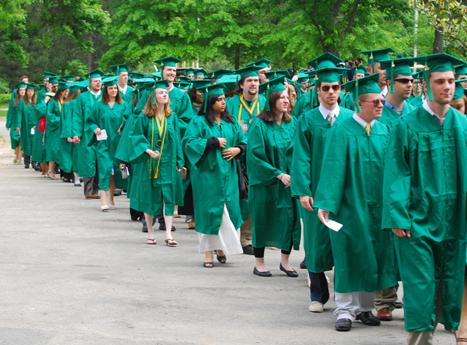English department offers new Ph.D. in Writing and Rhetoric
This year, the Mason English department added a new Ph.D. in Writing and Rhetoric to its list of offered degrees. According to leaders of the program, Ph.D. students in Writing and Rhetoric are exactly what organizations in the nation’s capital need.
“We’re interested in how organizations work, how institutions work, how you can take these different things you know about writing and rhetoric; composition, professional writing, public rhetoric; and craft research agendas that will then make you someone who can help an organization do better,” says Doug Eyman, Associate Professor of English and Director of the Ph.D. in Writing and Rhetoric.
The program offers students a chance to combine classic and contemporary study of rhetoric with digital, technical and professional writing while also allowing participants a chance to tailor the curriculum to their own fields. The Ph.D. program requires a total of 48 credit hours beyond the MA.
“The structure of the program itself encourages students to take courses outside our department to go into wherever makes sense for whatever project they’re working on, to take graduate level courses in those areas. In that sense we’re building in the possibility of multiple disciplines,” Eyman said.
The program has been long in the works among faculty, with talks of the program beginning before 2007. According to Eyman, the program is one of the reasons he joined Mason’s faculty in the first place. Since 2007, faculty have been going through the process of creating a Ph.D., getting approval at the state level this May. By fall the program was up and running. Leaders feel the opportunities for multiple disciplines mean better chances for employment.
“I know that students who graduate from the program will face a competitive job market,” said Dr. Steven Corbett, visiting assistant professor in the Department of English. “But, compared to many other fields in the humanities, there are a good number of job openings every year.”
While the program is in its initial stages, those in charge are crafting a media plan to start advertising for next year’s applicant pool. This will consist of social media and reaching out to professors at the Masters level. Even so, the program’s leaders are pleasantly surprised by the span it’s already been able to cover, with a few of the students coming from across the United States and one international student.
“I think it would be really interesting to bring in someone unexpected,” Eyman said. “Someone with a background in chemistry or another science who wanted to bring the writing element to their field. ”

